L.A. film crews descend on far-flung parts of Europe. Get the celery juice smoothies ready

[ad_1]
The kitchen staff in one of this city’s newest chic hotels, housed in a 15th century palace, knew Hollywood had arrived when film crews flown in from California started calling room service to demand smoothies — juiced celery and all.
Yet most Americans can’t find this Baltic nation on a map. The people of Vilnius, the medieval capital of cobblestone streets conquered easily by foot, don’t feel slighted even if they make it a point to understand the health fads of Los Angeles.
But the American film industry — three decades after this sliver of country broke free of the Soviet Union — is bringing about a change here few would have predicted.
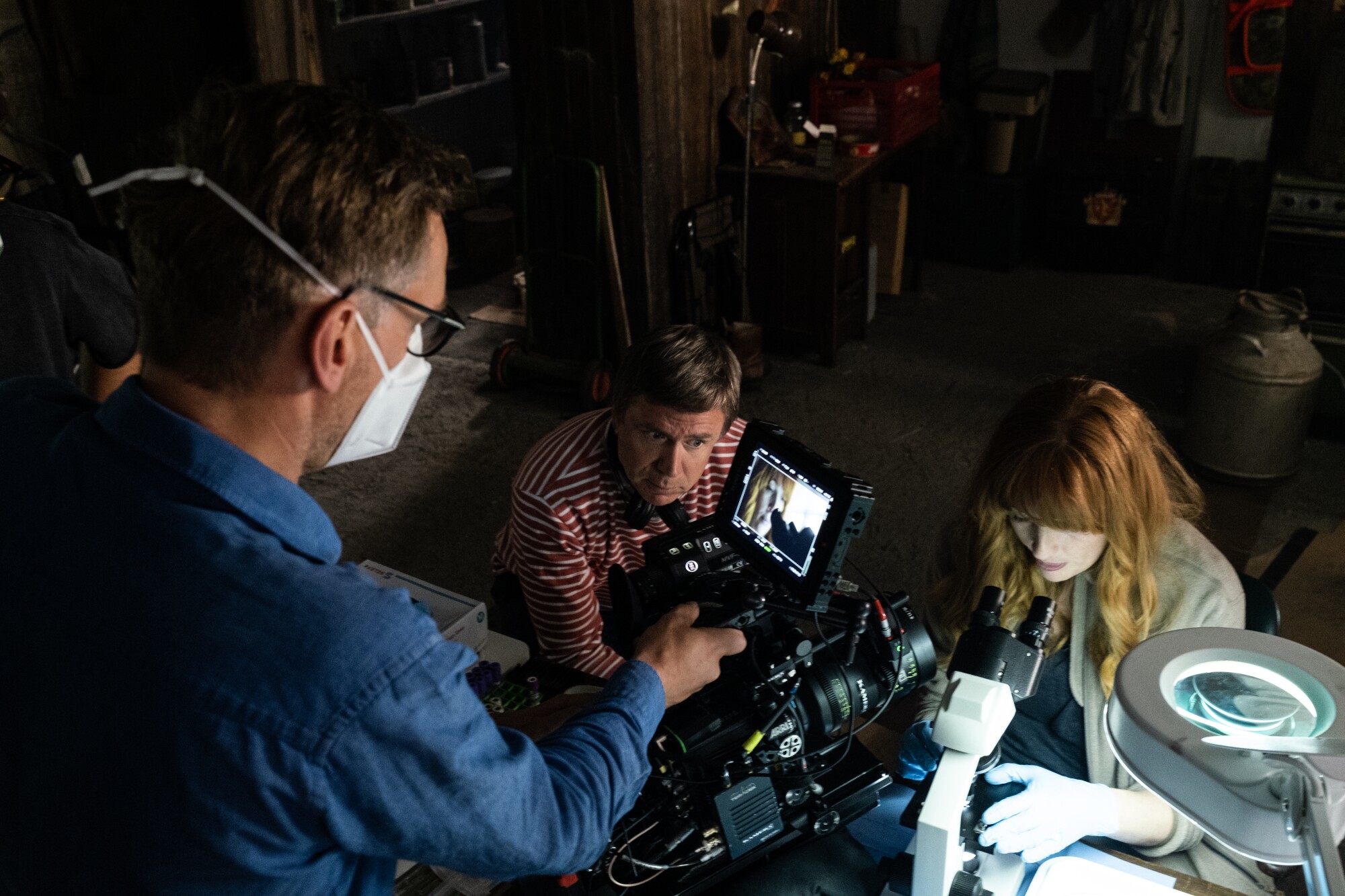
On the set of “R.I.P Henry,” a Norwegian drama series directed by Arild Frohlich, in Vilnius in July 2022.
(Berta Tilmantaite / For The Times)
“Hollywood has landed in Lithuania,” says Jurate Pazikaite, a former international investment worker who, for the last decade, has had the job of luring America’s streaming companies and film studios to shoot their scripts and spend their dollars. After years of working solo and watching big names pass over her native land, she brags these days about why she is hiring new staffers.
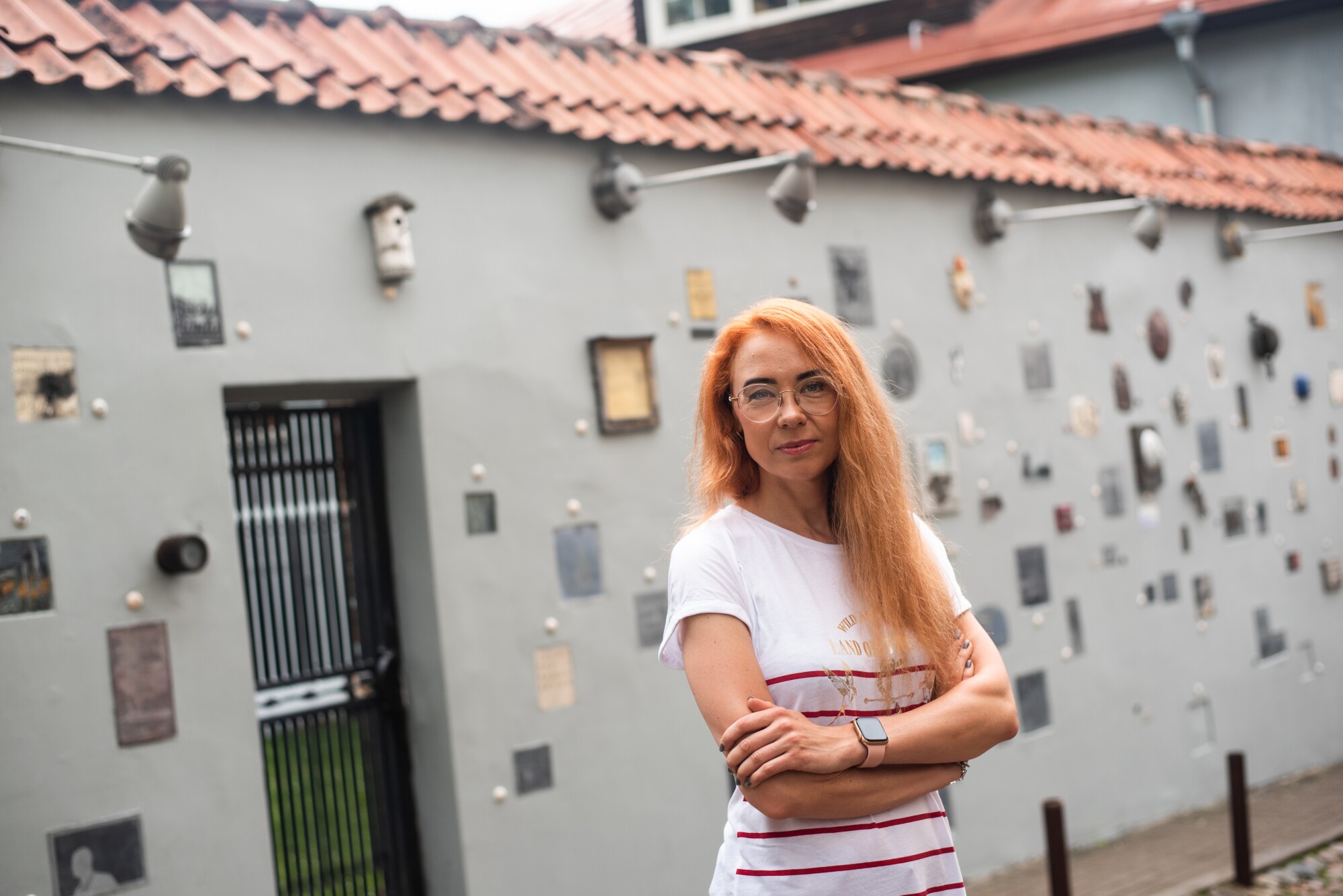
Jurate Pazikaite has directed the Vilnius Film Office since it launched a decade ago.
(Berta Tilmantaite / For The Times)
“HBO, Netflix, they are all coming.”
Attracted to places like Vilnius, where Moscow and Paris collide at a fraction of the cost — and tens of millions of dollars in production rebates are quickly granted — Hollywood is setting its sights on lesser-known corners of the globe. Expensive studio lots and permit-heavy American landscapes are being traded for the Baltics, Mediterranean and Eastern Europe, where the dollar goes further, workers cost less, crew hotels are cheap and a history of war and conquest means cityscapes from D.C. and Denmark can be easily conjured.
“It’s a country that kind of feels both East and West,” says screenwriter and producer Craig Mazin, who wrote HBO’s “Chernobyl” and spent months in Lithuania as it was filmed. “You can find places in Lithuania that were used by the KGB and still feel like it. But then you go about town and it’s European and quaint. The potential is large.”

“Stranger Things,” the ‘80s-nostalgia-meets-sci-fi Netflix show that’s arguably the platform’s strongest franchise, filmed roughly a third of its new season in Lithuania. A decommissioned prison in the center of Vilnius stands in for Siberia, where Jim Hopper (David Harbour) is tortured and confined by the Soviet guards before facing a supernatural monster. An Orthodox church 28 miles west of the city is home to a TikTok-memed scene where he hides from his captors and desperately digs his fingers into a jar of peanut butter. In another clip, a Vilnius suburb depicts Alaska.
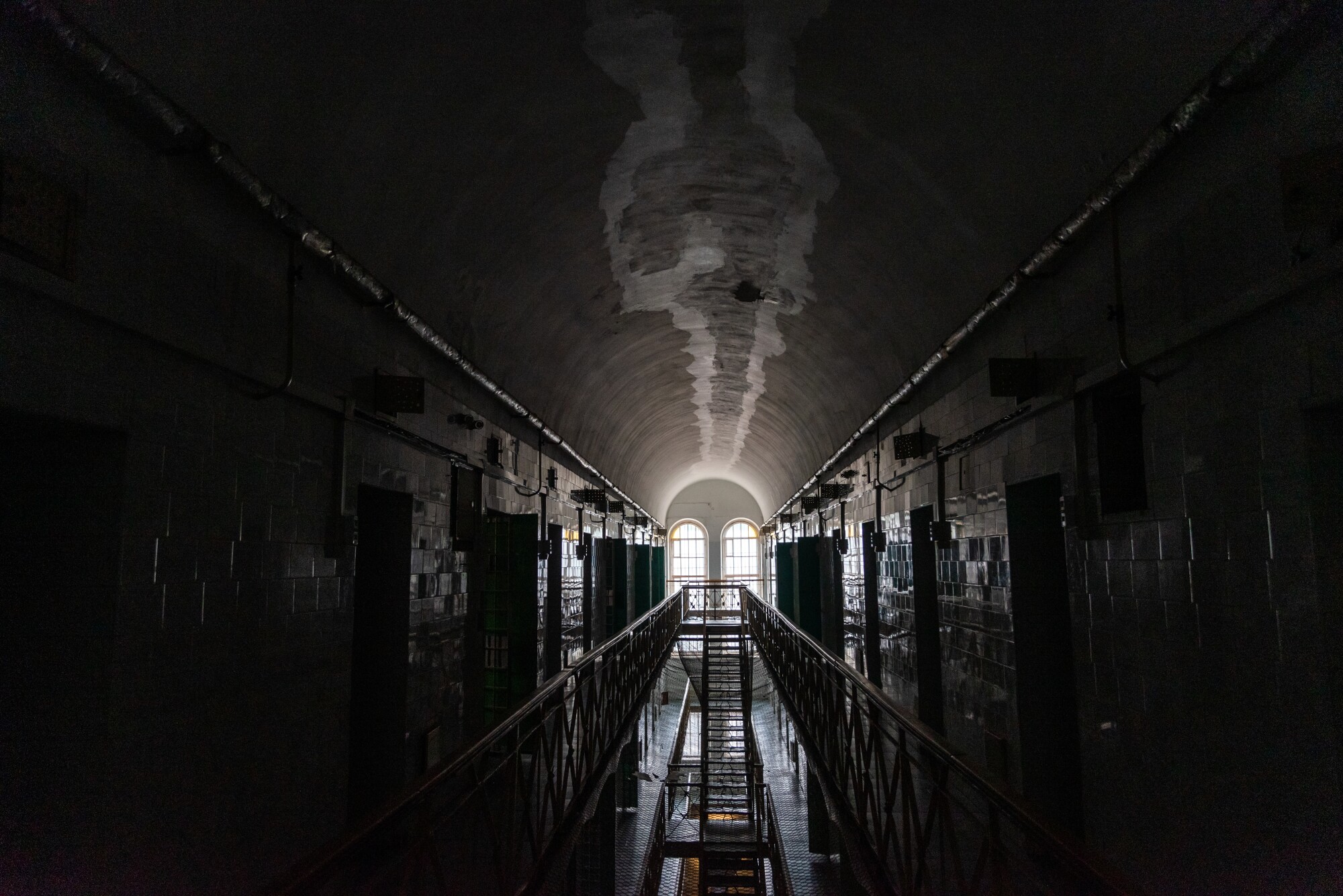
Lukiskes Prison, which closed in 2019, is today used for filming and cultural events. Near the center of Vilnius, its cells and grounds were used in the new season of “Stranger Things.” Tours are now given to fans of the Netflix series.
(Berta Tilmantaite / For The Times)
“I’ve worked for a long time to get the tourists here,” says Martyna Gruzauskaite, who co-founded a free English-language tour company in the capital seven years ago and more recently took a job at Lukiskes, a Czarist-era prison in Vilnius that became a filming site and cultural center after closing three years ago. “But the number of people who come here now just wanting to talk about ‘Stranger Things,’ I’ve never seen that before. Suddenly, all these people know what Vilnius is. It’s unusual.”
Before the Netflix hit, it was actors and crews from “Chernobyl” and another HBO show, “Catherine the Great,” that called Lithuania home as it stood in for Russia and Ukraine. Norwegians and Swedes, no strangers to storied film traditions, are increasingly ditching their expensive cities to shoot in Vilnius, which in the last years has played Oslo and Malmo with “Occupied” (Norway) and “Young Wallander” (Sweden), both on Netflix, setting up in the city.
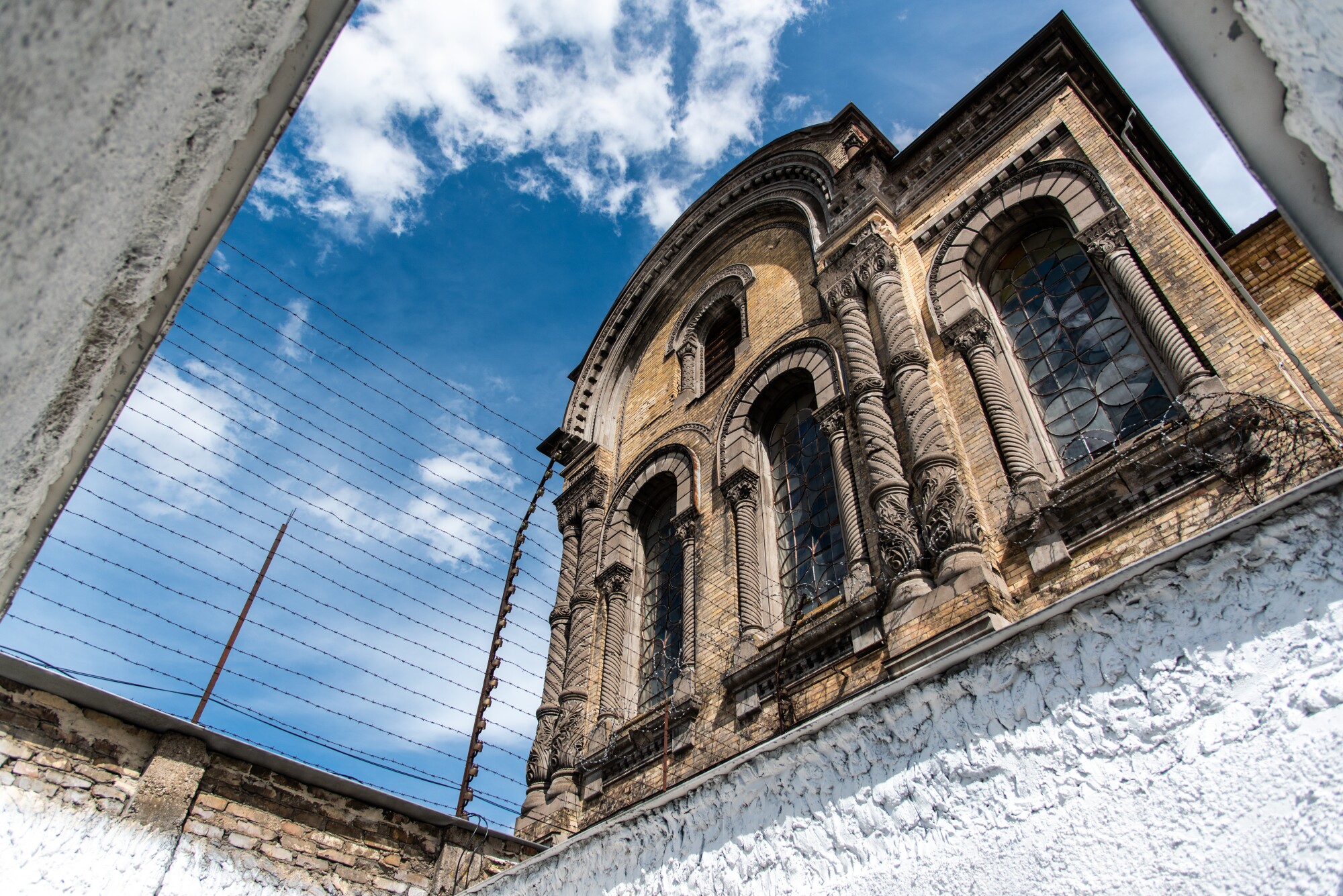
Lukiskes Prison was built in 1905.
(Berta Tilmantaite / For The Times)
The Vilnius Actors Studio, modeled after the famed New York center once led by Lee Strasberg, opened in 2017 and now flies in teachers from California — Barry Primus among them — to lead workshops in a nation where a Soviet-era stage culture still reigns but on-screen training and film courses are rare.
“Europe’s little Hollywood?” a recent news headline said, wondering if the recent success in this tiny nation — where refined petroleum is the biggest export and Russia is a constant nemesis — is its future or fleeting luck in a time of rising global inflation.
Hollywood’s venture into the Baltics — neighboring Estonia has ridden a wave since the blockbuster science fiction thriller “Tenet” was shot in the capital city, Tallinn, before the pandemic — isn’t without tension. Money and a sense of equality play a big part. Local workers complain about pay. It’s better than what they’d get from native filmmakers, but far lower than the unionized Americans they sit alongside who stay in Airbnbs and five-star hotels.

Film shoots have also brought griping about street closures that any Californian knows too well. “‘Chernobyl’ is a disaster for Vilnius,” read an article bemoaning the presence of HBO crews. And there are those who wonder whether the sudden boom in American storytelling will hamper indigenous creations, language and folklore. Long under the shadow of the neighboring Poles, Belarusians and Russians, Lithuanians tend to have an independent streak. Some welcome Americans with caution.
“Overall, we like that the big shows are now coming here,” says Donatas Simukauskas, a 42-year-old actor who runs Actors Agency, a Vilnius-based casting company. “But it does make it harder to make Lithuanian productions. They just don’t have the same kind of money. And our industry is small, so how do you compete for staff and actors with Netflix when it comes to your city? How do you make a Lithuanian-language film that is profitable when only your country speaks the language?”
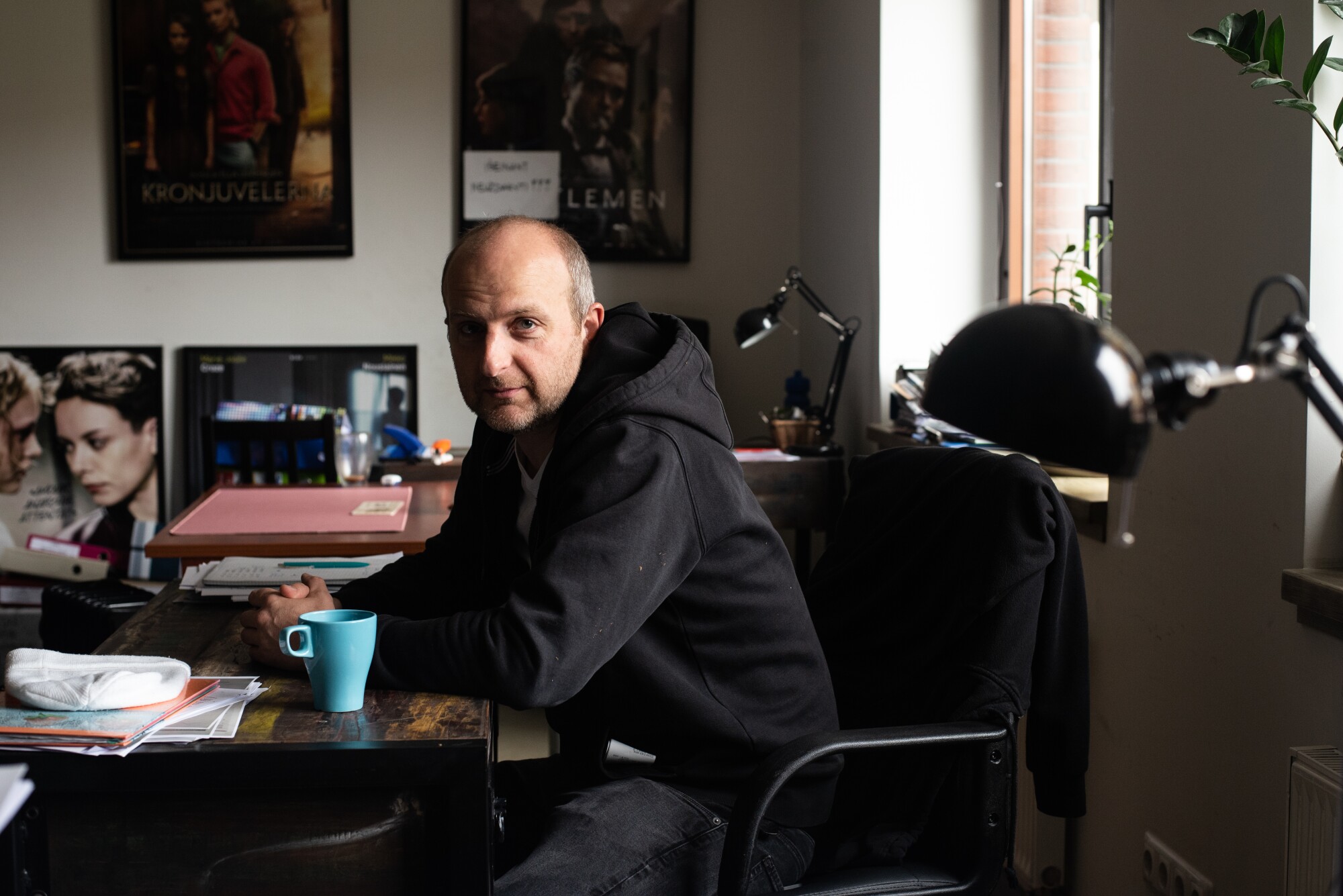
Donatas Simukauskas, an actor and a casting director with Actors Agency in Vilnius, Lithuania.
(Berta Tilmantaite / For The Times)
The emergence of Vilnius, with its preserved old town of two- and three-story baroque structures a short ride from brutalist Soviet apartments and modern high-rises that could easily fit in the Manhattan skyline, is part of a global trend. Cities around the world, as well as in struggling states in the U.S., are competing for Hollywood dollars by offering generous tax rebates and footing production bills in hopes of revving up their economies. All for the allure of the money, glamour and IMDb credits that the nonstop content machine of Hollywood provides.
Call it the “Game of Thrones” effect.
Northern Ireland and Croatia, two regions where violent histories long colored how the world saw them, today credit the epic HBO series for overbooked hotels and newfound notoriety years after scenes of Winterfell (outside Belfast) and King’s Landing (Dubrovnik) stopped airing. A $47-million “Game of Thrones” tour opened this year in Northern Ireland at Belfast’s Linen Mill Studios. In Croatia, the walled old city of Dubrovnik has become a must-visit for backpackers and destination weddings.
Years before, it was New Zealand — no newbie to oenophiles and eco-visitors with its stunning valleys and waterfalls but only more popular after “The Hobbit” and “The Lord of the Rings” — that took advantage of fan fervor and all that it brings.
Europe is not a new destination for Hollywood. For nearly a century, Pinewood Studios — just west of London — has produced major franchises including James Bond and Batman. South of Berlin, Studio Babelsberg rivals Paramount, Disney, Columbia and Universal in Los Angeles. But since the end of World War II, the U.S. has aggressively marketed its capitalism and culture, most notably its movies, to the world. And now, reminiscent of the early days of Tinseltown, places like the Baltics and Balkans have joined the newest frontiers.
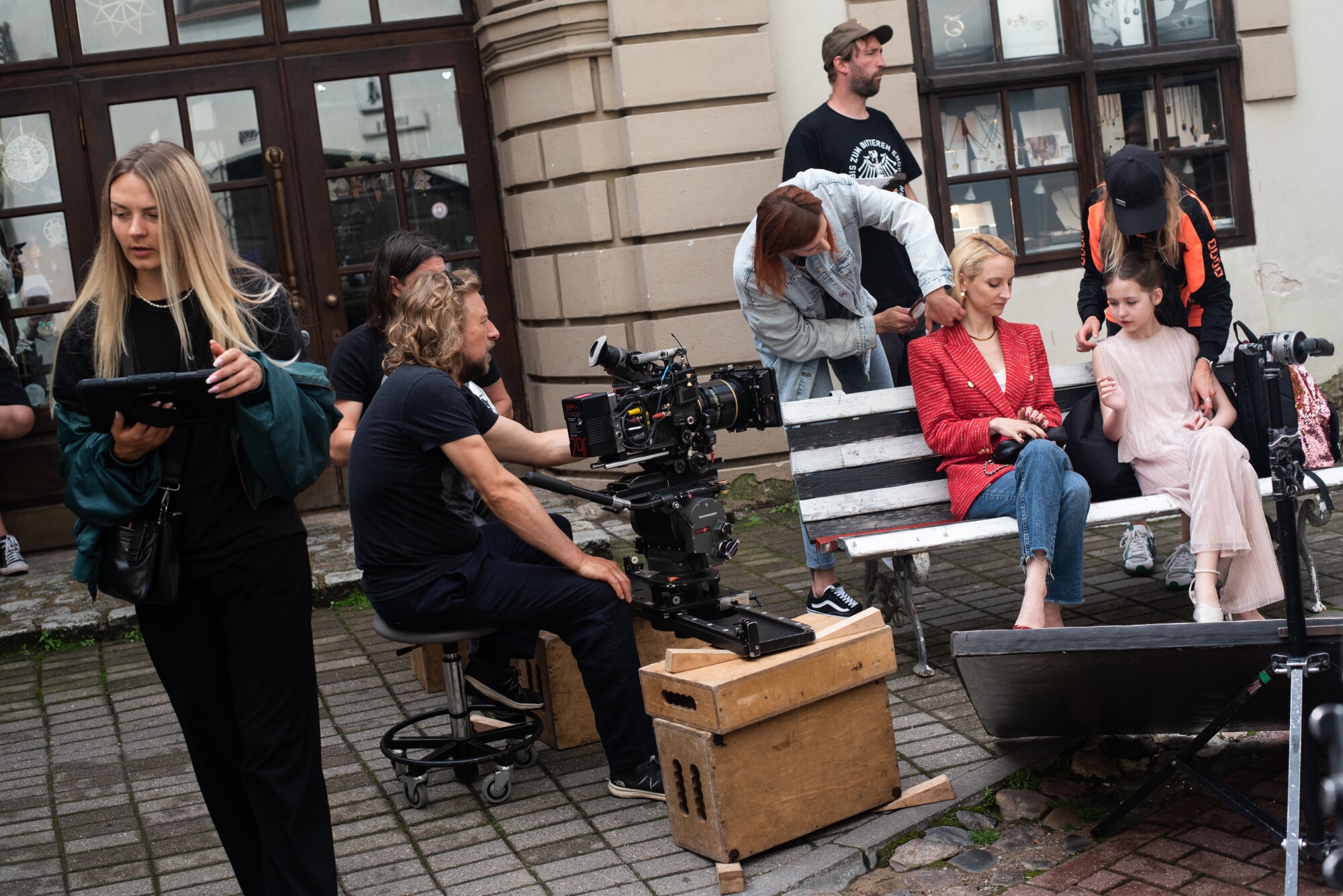
The Lithuanian series “Troll Farm” was shot in the old town of Vilnius.
(Berta Tilmantaite / For The Times)
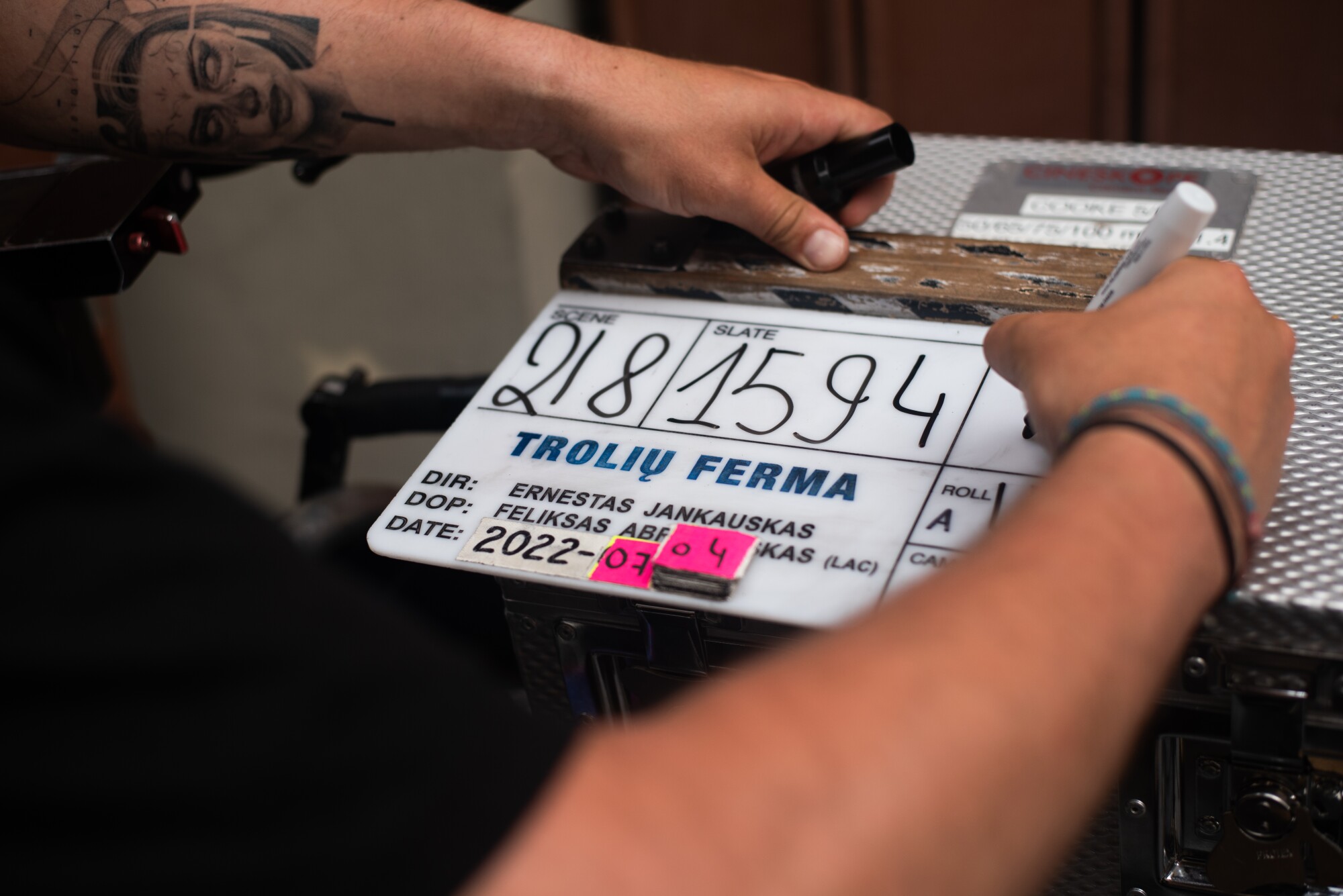
Preparing for a shoot on the set of “Troll Farm.”
(Berta Tilmantaite / For The Times)
“It used to be for Europe that you had the U.K. for studios and shoots and a few other countries that dominated,” says Scott Roxborough, who has covered the industry for 20 years as a Cologne, Germany-based writer for the Hollywood Reporter. “Now, because of streamers that need continuous content, the demand is growing everywhere with these smaller countries — Estonia, Malta, Lithuania — competing for Hollywood, each trying to outdo the other with bigger tax incentives and other offerings. Even if they don’t get these big blockbusters, there’s so much happening on streaming that they are bound to get something and hope it raises up their own local language industries too.”
American-style big-budget moviemaking in Lithuania, which has a population of 2.7 million, is still in its infancy. The nation’s few cities — Vilnius is the biggest, with a regional population of 700,000 — give way to thick pine forests, rolling hills and a short Baltic coastline. In 2021, $38 million was spent among 11 Lithuanian-language productions and 16 foreign or co-produced films and shows here. Ten years ago, it was mostly smaller Lithuanian films — at a cost of about $6 million — that were made in this country. Compare those numbers to California, where a conservative estimate says $2.6 billion was spent last year just on shoots that qualify for tax breaks.
Newsletter
Global California Alert
Receive an alert every time there’s a new story in The Times’ Global California project, showcasing the connections between California and the world.
You may occasionally receive promotional content from the Los Angeles Times.
“We are a small place,” says Pazikaite, the Vilnius Film Office director who for years has flown to Los Angeles and London to coax Americans and Britons to give her native country a shot on the screen. “But we are performing better than you would expect.”
Since 2019, she has offered 30% back on production costs, financed through the government via private investors, as long as Lithuanian production assistants, assistant directors, camera workers and others are hired alongside American staff. The rebate, which launched in 2014, was previously 20%.
Some nations, such as Malta and Greece, offer even higher paybacks at up 40%. The Canary Islands, part of Spain, doles out 50%. Lithuania is following Hungary, Romania and Bulgaria, where Oscar-nominated films have shot for years and Los Angeles studios have taken advantage of increasing financial incentives. Vilnius is also cheaper and more manageable than bigger places. A trip from a historic castle to a skyscraper to the old town is a matter of a $4, 10-minute cab ride. The best hotels start at $70 a night and top out at $240.
“Films and TV have lifted up our city during the pandemic to the point that our hotel’s biggest customers are Americans and British people,” says Ruta Pulkauninkaite-Macike, the manager of Hotel Pacai in the Lithuanian capital. The five-star accommodation in a former 15th century palace opened four years ago and largely serves foreign crews and the tourists they attract.
The relationship between Lithuania and the United States is in many ways a natural one.
A former two-time president, Valdas Adamkus, spent his adult life in the U.S. and worked for the Environmental Protection Agency before returning to his homeland to serve in office in the late 1990s and early 2000s. American filmmakers were some of the first to travel to Vilnius after the Soviet Union collapsed. Older Lithuanian actors fondly recall the late 1990s, when TNT’s “New Adventures of Robin Hood” shot in their capital (one of that show’s actors, Vaidotas Martinaitis, plays a Soviet prison warden in “Stranger Things”). But it’s only in the last few years that the nation has become attractive to the biggest hitmakers.
Still, those in the industry say it’s not all good news.
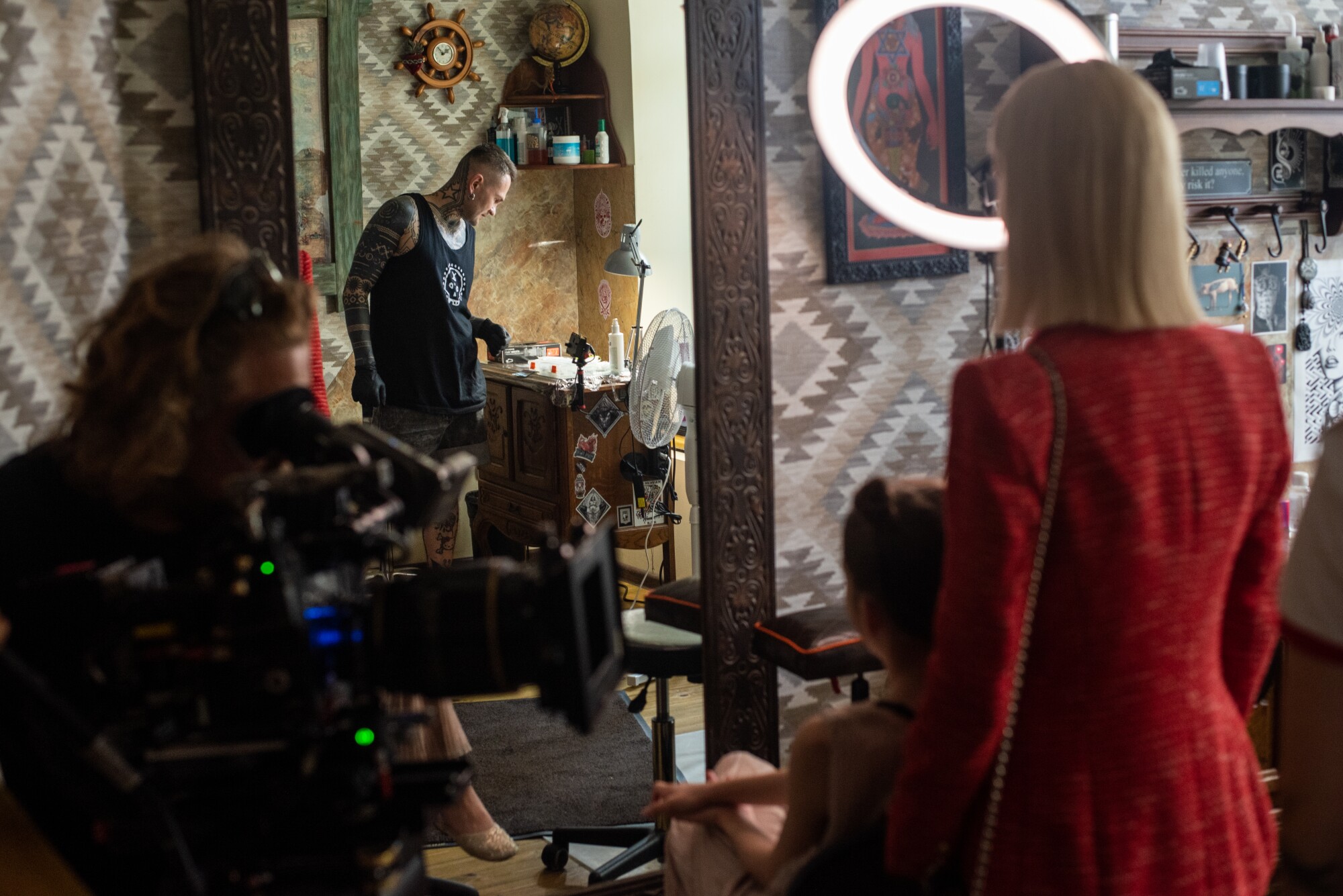
A scene from “Troll Farm” is shot in a tattoo parlor on historic Literatu Street in Vilnius, Lithuania.
(Berta Tilmantaite / For The Times)
“People in Lithuania are excited to get this work. We get to put HBO and Netflix on our resume, and suddenly we can get jobs anywhere in this part of the world,” says Akvile Stankute, a 34-year-old costumer who has worked for several HBO projects since her first gig in 2015.
“We get paid more than you would get in other jobs here and in any locally made movie. But we don’t get paid like the Americans,” Stankute says, adding that entry-level salaries start around $80 for the standard 12-hour day in her line of work. In the U.S., entry positions in costuming can pay several times that amount. “I’m curious to work in Hollywood just to see how the industry works there. But I like my country and would prefer to stay here long-term. Maybe Tarantino will fly one day to Lithuania.”
In her ideal world, Stankute would do a mix of projects — American, Nordic and Lithuanian — though she says the latter is lacking and tends to “not have those big budgets.” European Union rules say streamers must broadcast European content for 30% of their offerings, though any of the continent’s languages qualify.
Gabija Siurbyte, a 40-year-old actress and co-founder of Dansu, one of a handful of production companies Americans team up with when they land in Vilnius, sees it differently.
“When the Netflix and HBOs come here and we work with them, we get to learn how to do the work at its best,” she says. “Then, we can take that knowledge and use it for what we do next.”
Siurbyte, who runs Dansu with her husband, recently finished shooting a Lithuanian-language series for the national broadcaster called “Troll Farm.” At a cost of $200,000 per hourlong episode, it’s an expensive ordeal in this country, where the average annual salary is in the low five figures and people are more accustomed to cheaper soap operas and 30-minute sitcoms.
“I want to be like Reese Witherspoon,” says Siurbyte, referring to the A-lister’s successes in acting and producing. She dreams of striking a distribution deal for her show, a dramady about a cosmetics CEO seeking revenge for her dismissal, with the Hollywood connections she’s made over the years.
An independent local scene is also slowly growing. Lithuania has hosted a stand at Cannes for more than a decade. This year, four films, including a documentary about the war-battered city of Mariupol in Ukraine, screened at the famed French festival.
For those who have pushed Hollywood to look to the Baltics — especially the Lithuanian government — the hope is that America’s filmmakers will also one day recruit local filmmakers and screenwriters.
That has happened in other nations. Netflix announced this year that it would open an office in Poland. Amazon Studios has locations in the U.K. and Spain. HBO notably launched outposts across Europe and the Americas over the years, creating its own programming in native languages. But this month, the media giant said it would save millions by halting all production of original shows from Denmark, Sweden, Finland, the Netherlands and Turkey.
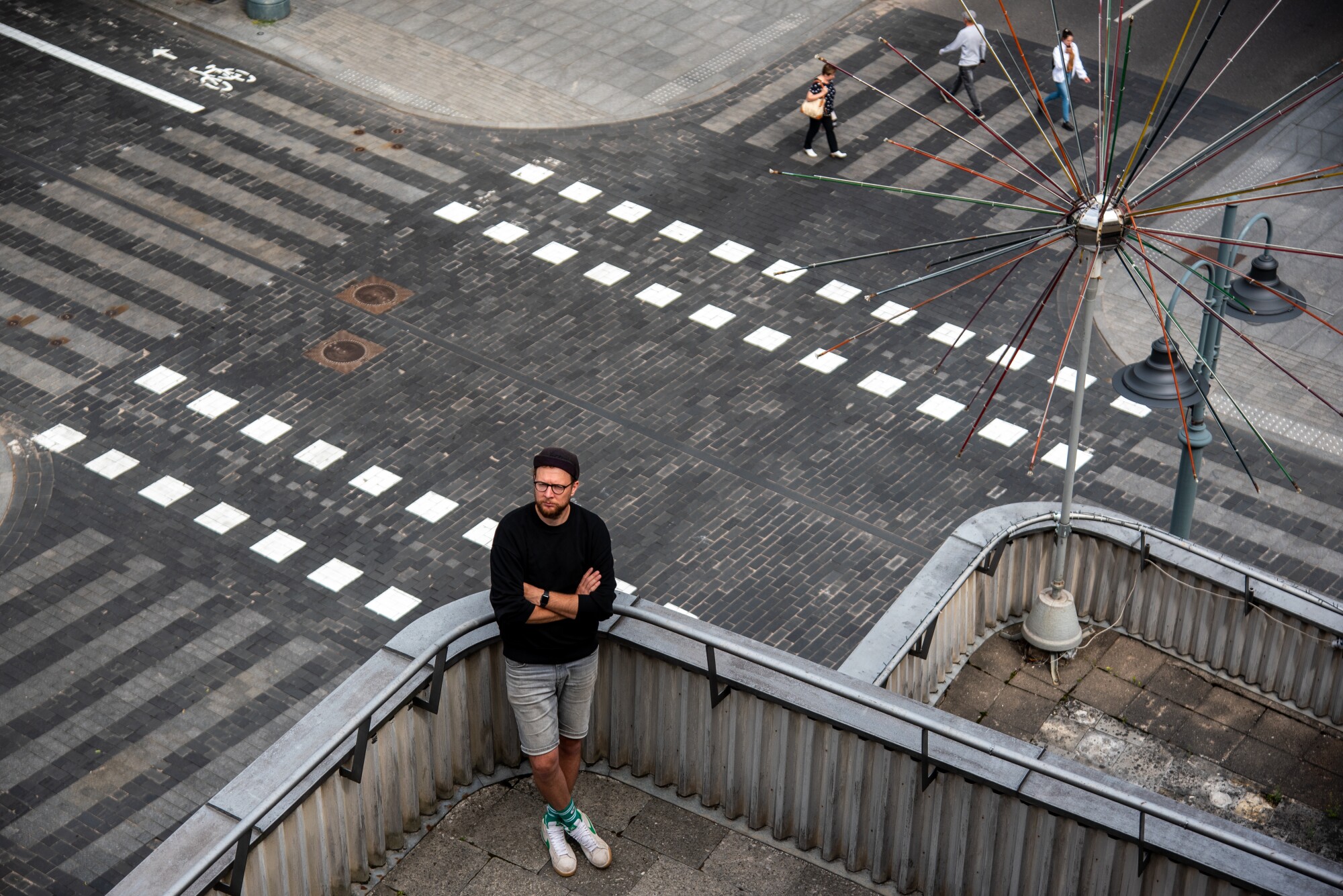
Jonas Spokas, who founded Baltic Locations, scouted areas for “Chernobyl,” “Stranger Things” and other Hollywood productions in Lithuania.
(Berta Tilmantaite / For The Times)
“It’s not easy for us,” says Jonas Spokas, the founder of Lithuania-based Baltic Locations, which has worked on nearly all the biggest shoots over the last few years. “When I go to Los Angeles to meet with the American film market, it’s clear a lot of Americans don’t go to our part of Europe. The closest people get is maybe Germany or Poland. They don’t know who we are. So we have to say something like ‘Chernobyl’ to get them to understand.”
The HBO drama, filmed in 2018 and aired the next year, used sites near the capital, including a towering Soviet-era apartment complex outside the city and a decommissioned nuclear power plant, to represent the story of Soviet Ukraine’s infamous nuclear disaster. Today, tours are still given to show the drama’s shooting locations. The Vilnius city website offers a film map for visitors.
“There’s a power about having a production in your city or country,” says Mazin, the Los Angeles-based writer behind the series. “Maybe we will go back and do a ‘Chernobyl’ retrospective sometime,” he said, half-joking.
For Pazikaite, the film office director in Vilnius, that would be a dream. A streaming devotee — “The Mandalorian” is her current binge, and she closely follows the Thor franchise — she doesn’t have cable and relies entirely on subscriptions. Raised in the 1980s, she learned Russian in school and remembers the “horrible Soviet TV,” among other things that were far worse.
“We’re lucky and proud to have turned away from that culture and time,” she said recently while in the city’s old town, sitting over a traditional bowl of saltibarsciai (cold beet soup with kefir). She praised the American presence in her nation.
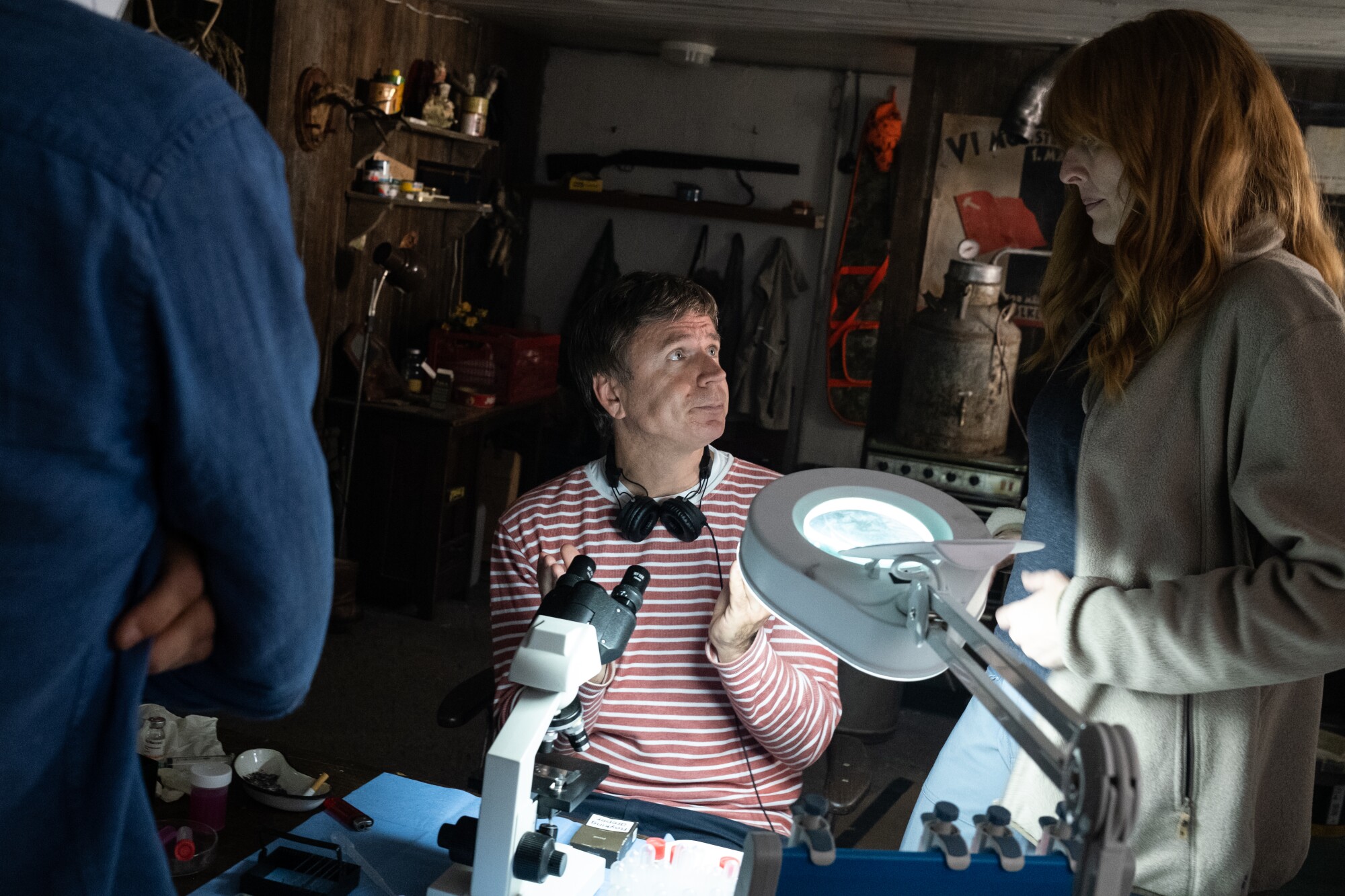
A scene from the Norwegian series “R.I.P. Henry” is filmed at Kino Studija in Vilnius.
(Berta Tilmantaite / For The Times )
“We do some great movies here. But TV here is not so good,” Pazikaite said. “But Americans, they know how to do it. I think they come here not knowing what to expect and then realize that they like it. I don’t know what we’d do if they stopped coming. But I doubt that will happen.”
She pointed to a souvenir magnet she held that the city gives out to film crews. It is a collage of a photo of St. Anne’s, a towering brick gothic Roman Catholic church in the medieval old town, superimposed in front a Star Trek-like spaceship flying by volcanic mountains rising out of a postapocalyptic scene that could fit in any number of Hollywood thrillers. Printed boldly on it in white is the city slogan: “Vilnius, amazing wherever you think it is.”
Times staff writer Rachel Schnalzer contributed to this report.
[ad_2]
File source